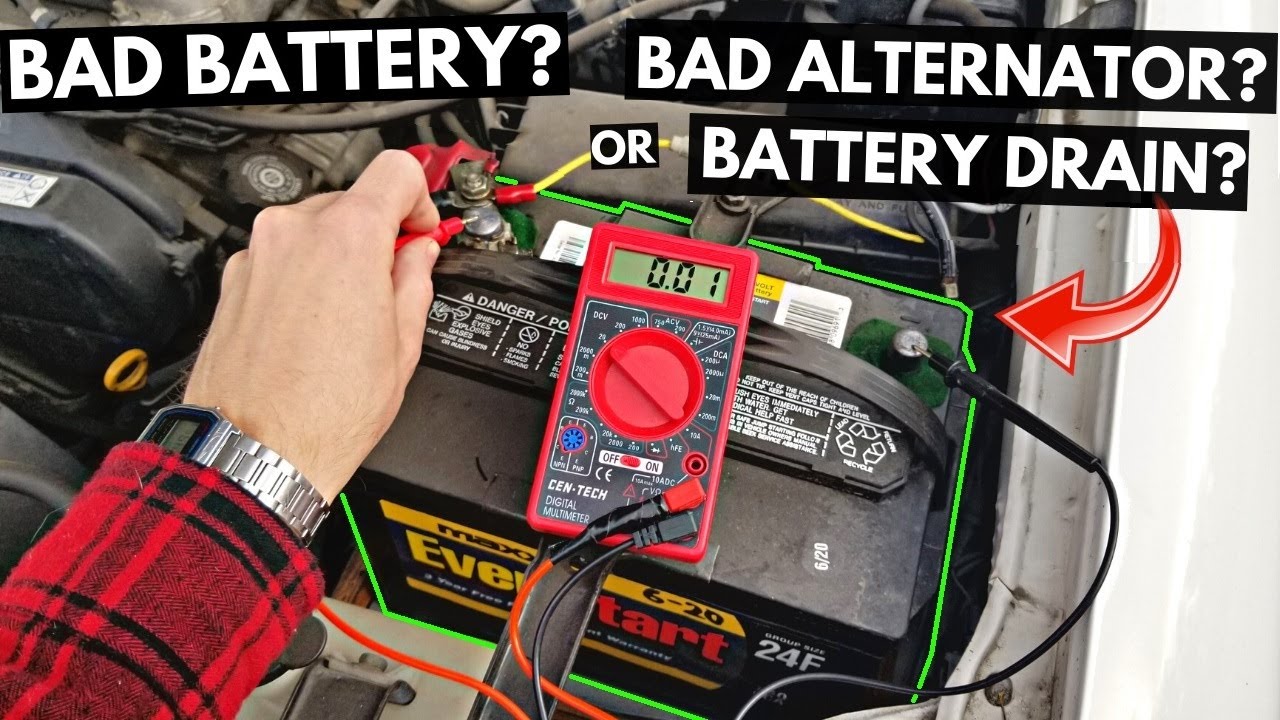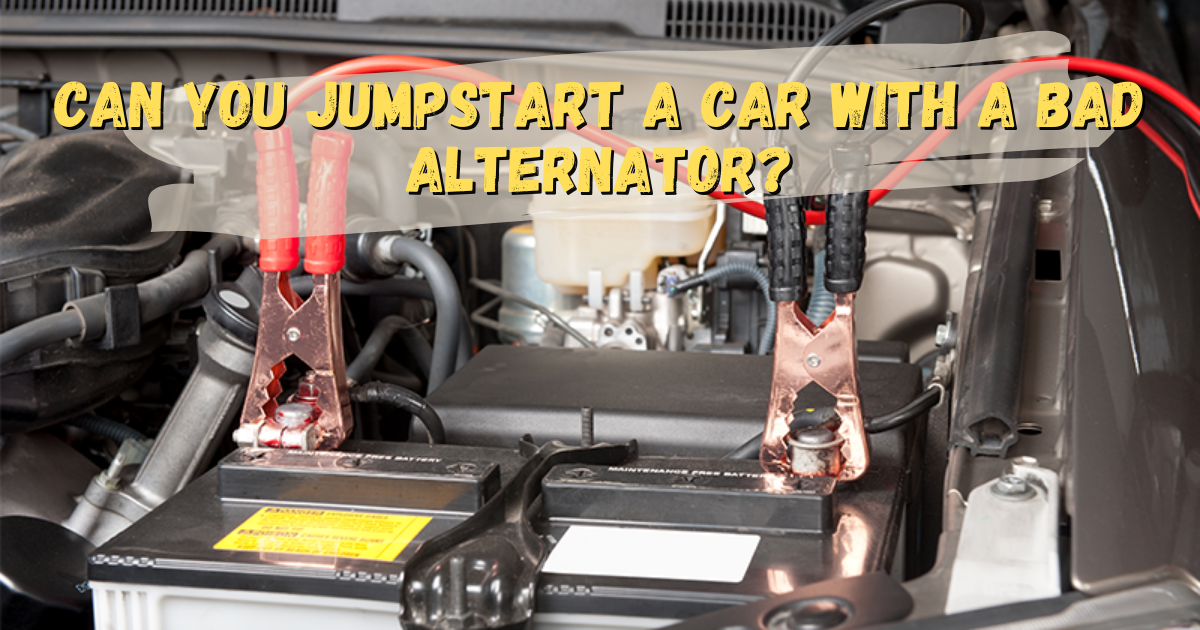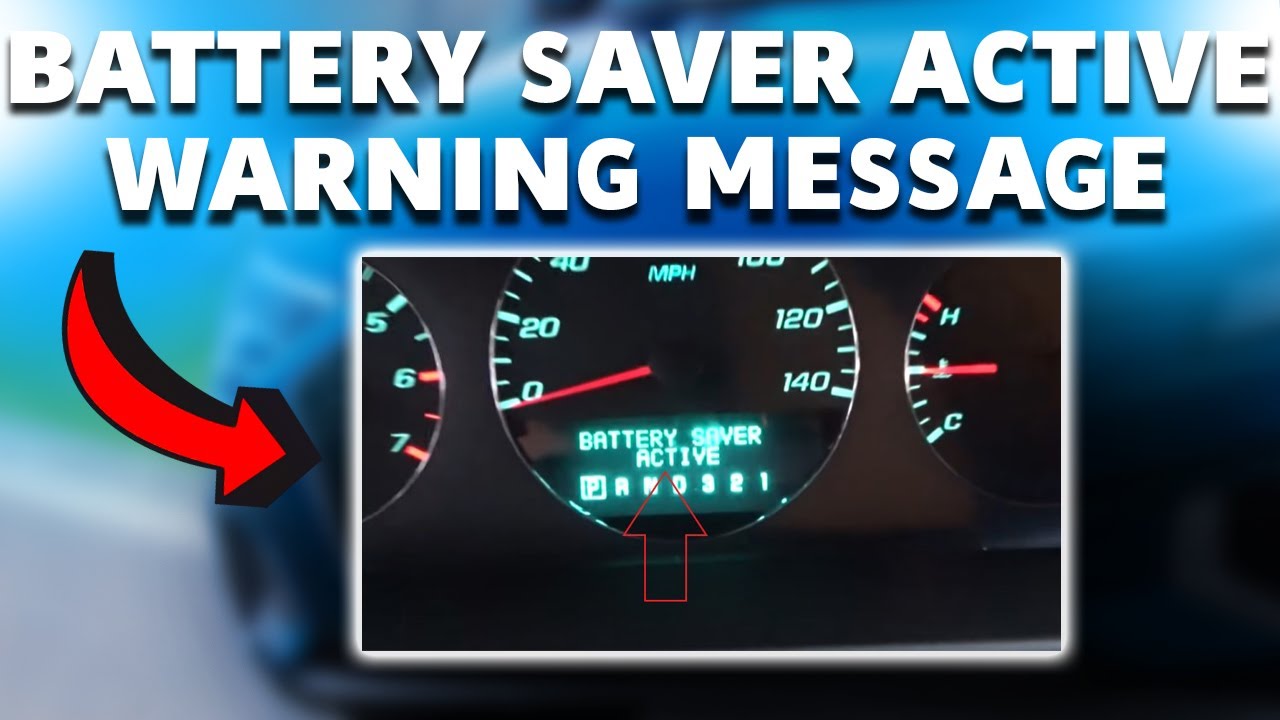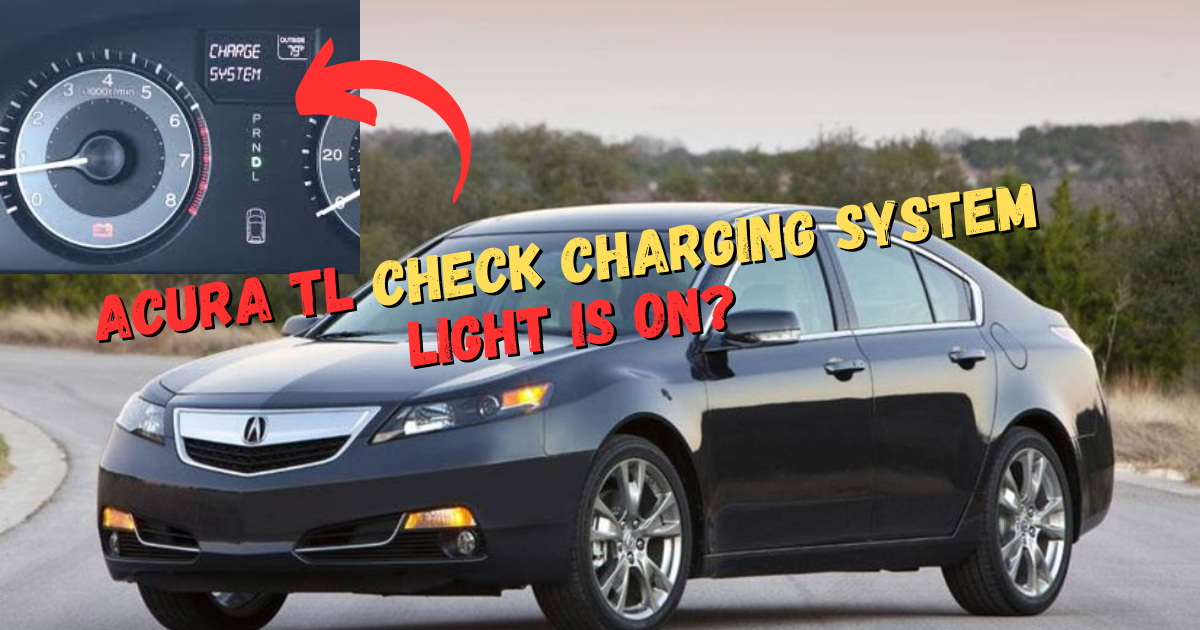Have you ever experienced a dead car battery? It’s an annoying experience that can ruin your day. But why do batteries die so quickly, and what causes them to drain? One possible answer is your alternator. And you may be asking yourself, “Can a bad alternator really drain a battery”?
An alternator is a crucial component of your car, as it charges and powers up the vehicle. However, if your alternator begins to malfunction or fails, it can drain your car’s battery completely in less than thirty minutes. This will leave you stranded with a dead battery and no way of getting home!
In this article, we’ll explore the answer to this question and offer some advice on how to detect a bad alternator and prolong the life of your vehicle’s battery. Read on to learn more about the relationship between a bad alternator and a drained car battery.
Does a Bad Alternator Have the Potential to Drain a Battery?
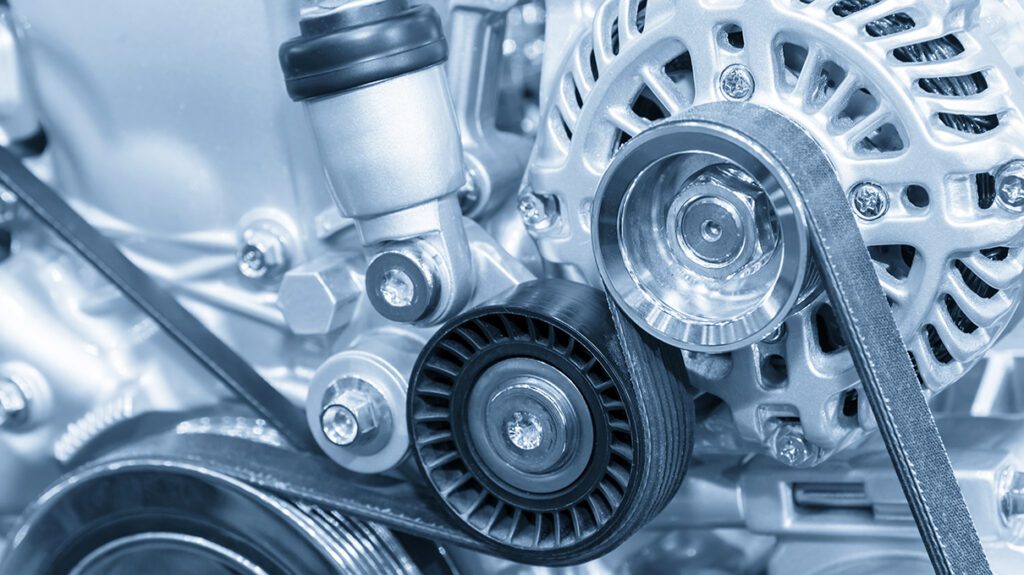
Your vehicle’s ignition system depends on the proper functioning of your car battery and alternator. The battery launches the engine and juices up all electrical components, while the alternator takes over when it’s running – transforming mechanical energy into an electrical source that recharges the battery.
Although uncommon, an alternator can have the contrary effect and drain a battery. When there’s something wrong with either one of its parts or connections connected to it, you will experience the issue of battery drainage. Therefore, ensure that your alternator components are in proper working order, so they don’t cause further issues with draining your car battery!
Can a Bad Alternator Damage a Brand New Battery?
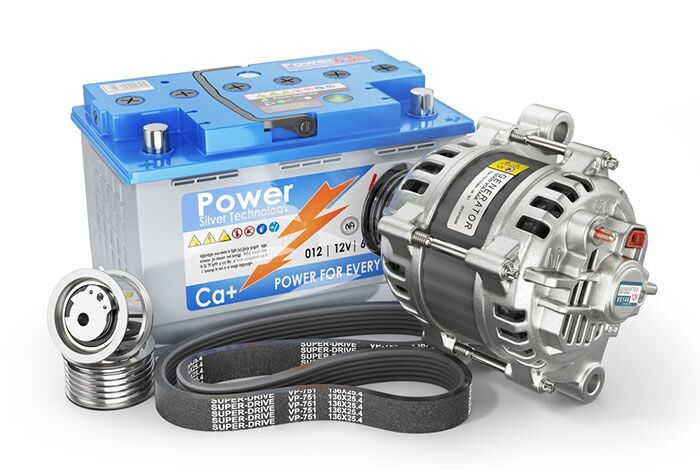
An inoperative alternator can wreak havoc on even a brand-new battery. This crucial component of your vehicle is tasked with keeping the battery powered by supplying electrical energy to the engine. If it begins malfunctioning, then it won’t deliver enough current to keep its charge up, leading to an earlier demise for the battery than expected.
Not only that, but if the battery charging system is not functioning correctly and overcharges the cells, it can cause irreparable harm to your battery. This could also result in the premature death of your brand-new battery, with no hope of repair or recovery.
How a Bad Alternator Rapidly Drain Your Car’s Battery?
Here are some of the ways a defective alternator could cause this issue:
Parasitic Draw – A Bad Diode
Alternators possess a rectifier, which converts the alternating current (AC) produced by the alternator into direct current (DC), an essential requirement for all of your vehicle’s electronics. Diodes are what make this AC-to-DC transformation possible since they only permit electrical flow in one direction around the circuit.
If any diodes become damaged or worn out, however — electricity can travel through it back even when your engine is not running; we refer to this as parasitic draw or drain. This can ultimately result in a completely drained battery.
Improper Charging
Not only does a bad alternator take away power from your car, but it can also result in improper battery charging. Because of insufficient energy production on its part, all the electricity produced is directed to other car systems; this means that every time these devices need more power, your stored battery energy is taken out as well. This might be because of the following:
- Faulty diodes
- Voltage regulator issues inside the alternator
- Worn brushes
- Corroded connections
- Broken wires and
- Bad connections
How Fast Does a Bad Alternator Drain a Battery?
If your vehicle’s alternator breaks, you will have up to 30 minutes of battery life. However, you may experience a quicker rate of battery depletion depending on the following:
- Charge level before failure of the alternator
- Overall state of your battery
- Usage of air conditioning or any other energy-consuming functions
How to Diagnose if the Alternator Is Draining Your Car’s Battery?
When experiencing difficulties with your car’s operation, examining and servicing the batteries and alternators should be of utmost importance. But how do you tell if the alternator is bad or draining your battery? Worry not!
There are two straightforward ways to diagnose whether this key component is defective and sapping power from your vehicle.
Remove the Negative Terminal
A simple test to determine if your alternator is faulty can be done in the comfort of your own garage as described below:
- Start the car
- Leave the hood open
- Disconnect one end of the negative battery terminal cable from its 12V connection point
What to Observe?
If your engine stops functioning, it could be an indication that the alternator is not supplying enough electricity and, instead, you are relying on drained batteries for power. In such a scenario, it’s possible that the alternator has failed or is struggling.
Check the Voltage
The second method to test an alternator’s condition is often the most popular but requires removal from the car first. Connecting it to a terminal of the voltage meter will show you if it has been working properly.
What to Observe?
Voltage should range between 12 and 13.5V; any number lower than this implies that it is not satisfyingly charging the battery, while numbers higher reveal overcharging of a standard 12V battery which can ultimately decrease its longevity.
What Causes an Alternator to Stop Working?
If you can identify the underlying factors that cause alternators to fail, you can prevent it from happening before it’s too late. Knowing what causes an alternator to go bad could help save your car and keep you on the road! The following are some of the most common culprits behind this phenomenon:
The Belt is Too Tight
An alternator belt that is pulled too taut may secure the part in place, but it could also lead to irreparable damage to the bearings of the electromagnetic system.
Dust Particles
If you reside in an area that has a high level of pollution, then it is likely that the parts of your alternator will be coated with dust and oil particles. These contaminants impede the alternating machine’s optimal functioning, making it less efficient.
What Are the Signs of a Bad Alternator?
Learn about the signs of a bad alternator!Now that you understand the significant impact a faulty alternator can have on your car batteries, electrical devices, and performance. So, what signs may you observe if a faulty alternator is draining your battery? There are several telltale signs of a bad alternator that will let you know it’s dying.
Check Charging System Light

When your vehicle starts without a hitch, but you see the “Check Charging System Light” on the dashboard immediately after ignition – this indicates an issue with your alternator rather than depleted batteries.
Dim Lights While Driving Your Car
As soon as you turn on your car, it’s the alternator’s job to power up and keep your vehicle running. Suppose you find yourself with dim lights or fading headlights while driving. In that case, this indicates that instead of providing energy for its intended purpose, the alternator is actually passing off some of its load to the battery – a sign that indicates something could be wrong with your alternator.
Strange Sounds Emerging Under the Hood
The alternator has a rapidly rotating shaft, and inside the casing are copper coils, brushes, and rectifiers that generate electromagnetic energy. If some of these components become displaced or faulty, you may hear an unpleasant grinding noise coming from the engine.
Improper Functioning Of Car’s Components and Features
If your vehicle is able to start, but its alternator isn’t doing the job it was designed for, then you can expect any sophisticated features of your car to be disabled. These may include:
- Air-conditioning
- Heated seats
- Electric Windows
- ABS
- Radio
- Wipers
- Many Others
If the alternator fails, the battery won’t have enough power to provide these energy-demanding features. Consequently, it will quickly lose its charge and be rendered useless.
Pungent Smell – Giving a Burning Sensation
The alternator is a dynamo, producing enormous amounts of energy – and with it, heat. If the belt driving this device loosens and rubs against its rotating shaft at higher speeds, sparks can form from contact between copper wiring and the metallic surface. So if you detect any acrid odors coming from your vehicle’s engine compartment, this may indicate that your alternator has overheated.
How To Fix a Bad Alternator?
If you’re dealing with a faulty alternator, the best fix is to visit a nearby professional and ask him to remove the old one and replace it with an exact-size replacement. After connecting all of the necessary wirings, return back it to your car and turn on the engine; this will ensure that everything has been properly installed. Your vehicle should now be running at its optimum performance level!
What Is the Average Lifespan of an Alternator?
The longevity of an automobile’s alternator can vary significantly, ranging from 100,000 to 150,000 miles depending on the caliber of battery used and energy usage.
Suppose your vehicle is in a temperate climate with mainly daylight-driven operations. In that case, it may outlast those cars in hotter regions requiring air conditioning and headlights during nighttime hours.
What is The Replacement Cost of an Alternator?
The cost of replacing your car’s alternator can vary from $200 to $800. This depends on whether you opt for branded or aftermarket parts and which specific car model you own.
What Are the Risks of Driving With a Bad Alternator?
If your car has a malfunctioning alternator, you can still drive – however, the battery will be forced to provide all of its energy needs. Due to the lack of recharging assistance from an operational alternator, you are only allotted a limited time before being stranded on the side of the road with no power left in your battery!
How to Keep Driving Your Car for Longer With Bad Alternator?
Here are some tips for keeping on the road with a malfunctioning alternator.
- When it’s time to start the engine, utilize a jump-start booster for maximum power.
- Try to save energy, and practice moderation when using features like headlights, fans, and radios while you drive.
- You can traverse a larger distance in less time when you drive at high speed. Nevertheless, ensure that your speed is always within the legal limit.
Conclusion
Ultimately, a bad alternator can definitely drain a battery if it is not functioning properly. It is important to regularly check and maintain both the alternator and battery to ensure the longevity and performance of your vehicle. Remember, a well-maintained alternator and battery can save you money and headaches in the long run.
